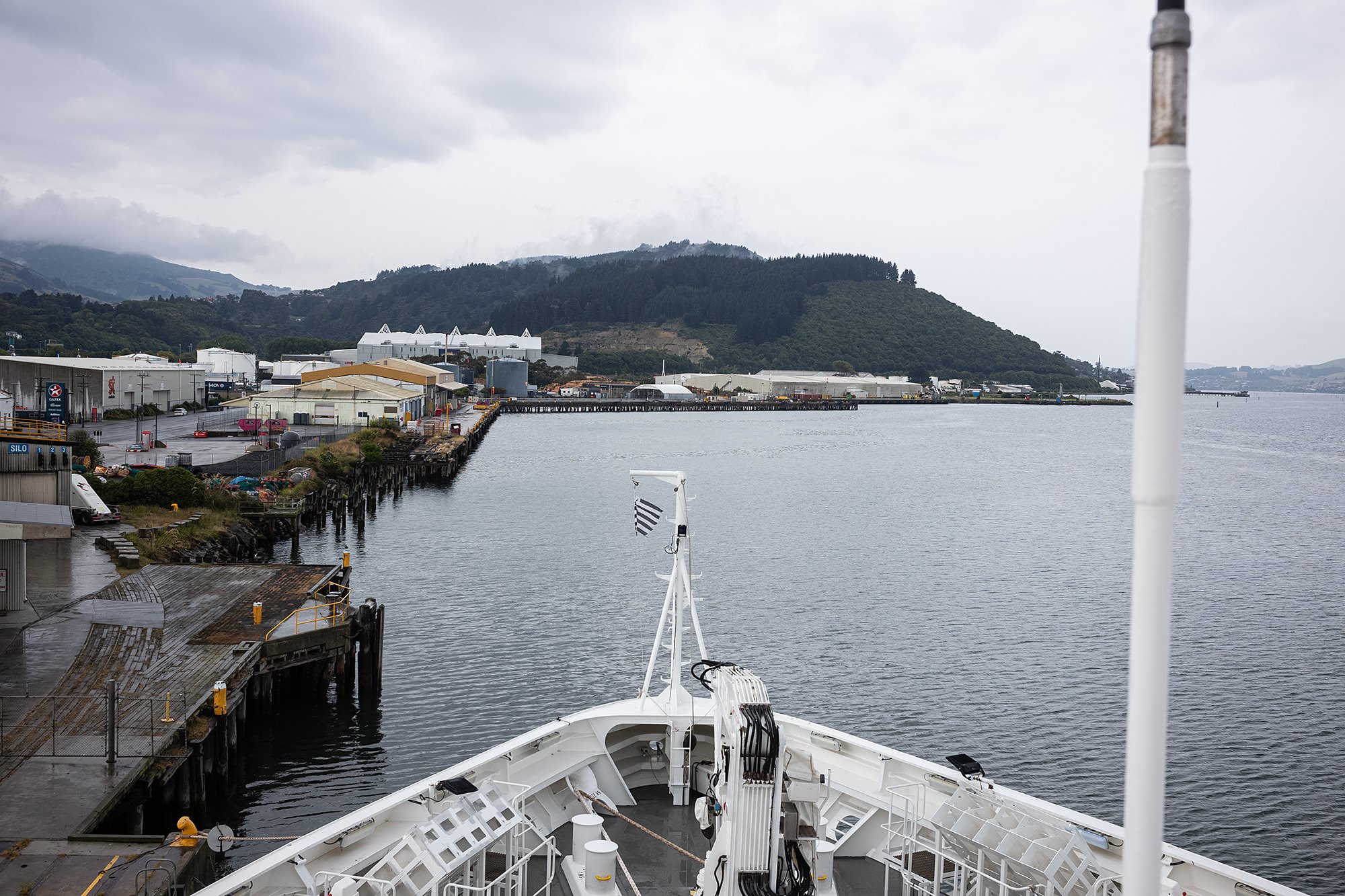
The Ross Sea Antarctica, part one
Dunedin, embarkation, and our first night at sea.
I ask for a late checkout. I’m granted until 1100, after which it will be 35$NZ to stay until noon. I don’t ask how much it will be if I stay later.
We’re not due to embark until 1600. After breakfast I pack my bags and linger in my hotel room until checkout, after which I leave my bags at the hotel to wander the streets of Dunedin. I have a few errands to run: medicines to stock up on, sunscreen to replenish, ginger candies to purchase.
The night before I had passed a Chinese garden on my way to dinner and decide to check it out. Rain has begun to fall and I don my waterproof boots.
I pay my admission ticket and enter Lan Yuan, Dunedin Chinese Garden. A few people sit in the pavillions shielded from the rain. I walk the paths, walking in a counter-clockwise direction, reversing course after coming back to the entrance in order to walk some of the alternate paths back to the exit. The tea house is closed for lunch.
I watch ducks fish in the pond and raindrops draw concentric circles upon the surface. It’s a lush gardens, and I don’t appreciate how green it is. In a few days we’ll try a landing at Enderby Island, after which we won’t see such vegetation again for almost two weeks.
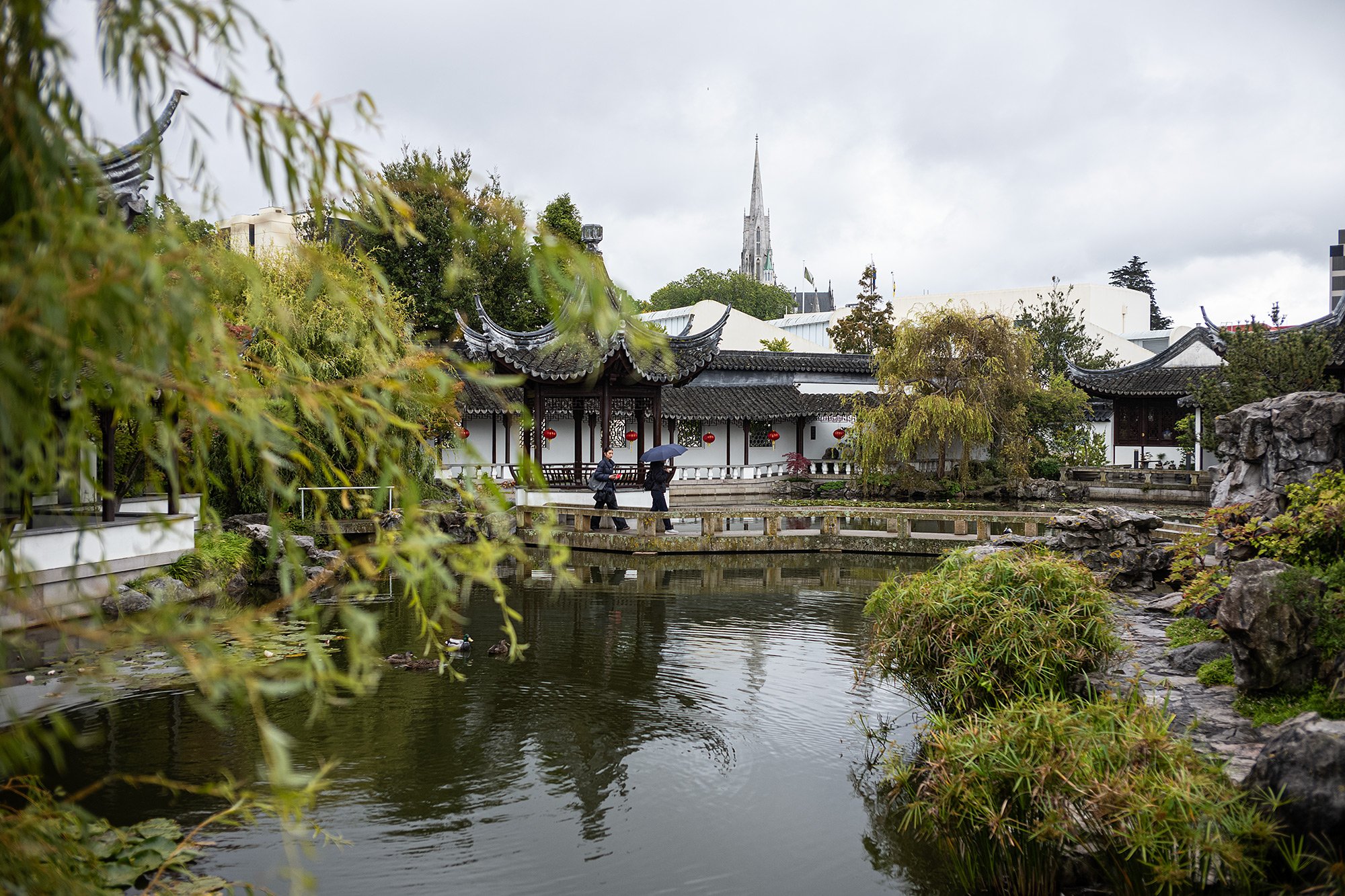

I walk back towards the center of town. I’ve decided to grab lunch from a Thai restaurant I had eaten at the day before, assuming I won’t have the opportunity to eat Asian food for the next three weeks. The amount of good and plentiful Asian food in New Zealand has been an unexpected bonus, and I’ve been indulging in it as much as I can.
The rain continues to fall and I duck into one end of the Toitu Otago Settlers Museum and walk the length of it in order to stay dry. It’s a beautifully-done museum of social history, telling the story of the people of Dunedin and the surrounding area. I walk quickly through the exhibitions and emerge out the other side, the train station in sight.

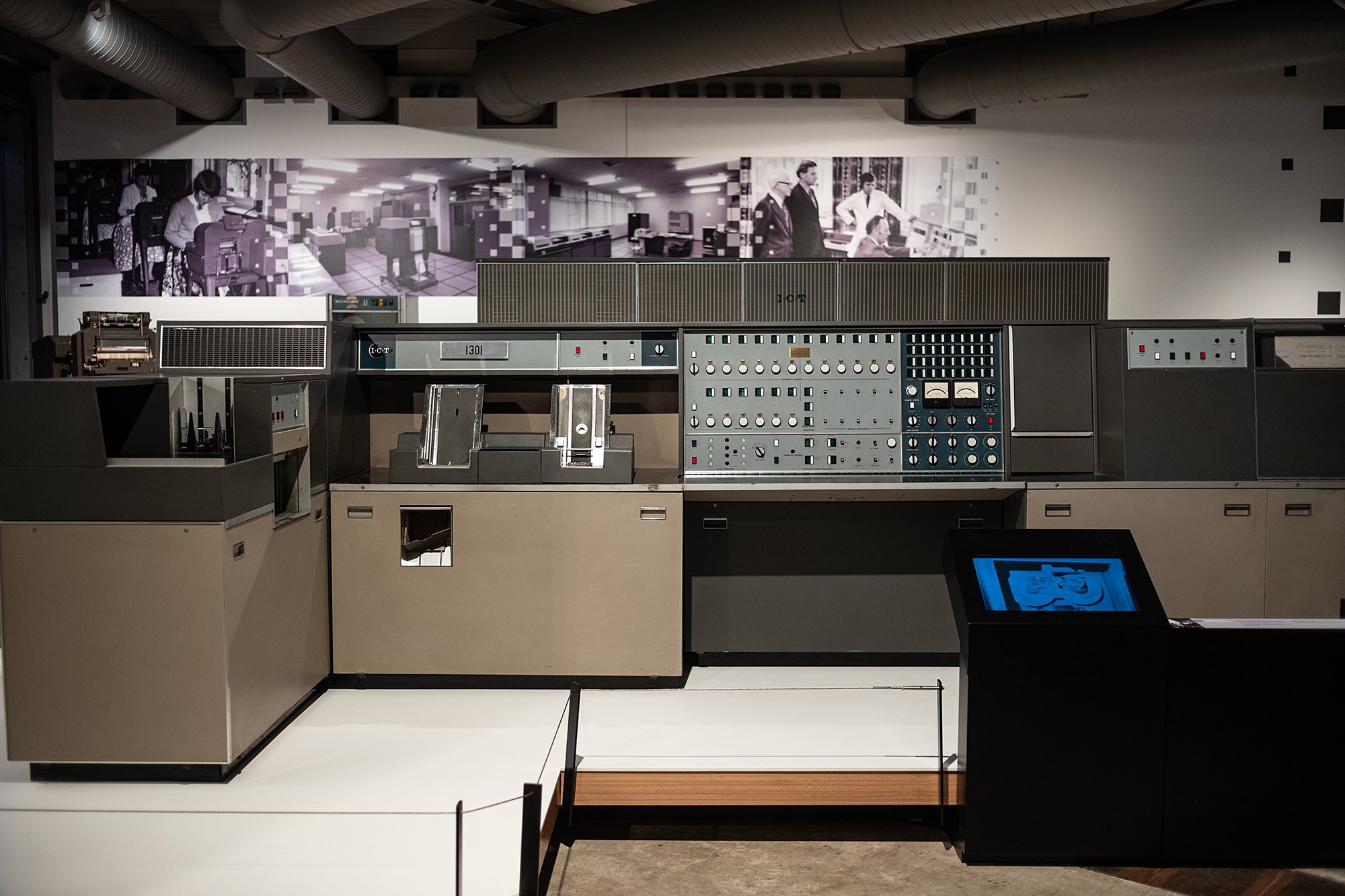
At the train station I turn left and head towards The Octagon, a plaza that marks the center of town. The road has been blocked off. A horse-drawn carriage and people in period attire sit in front of the city courthouse. I ask someone what they’re filming. East of Eden. The Steinbeck novel? Yes.

Back at the hotel I eat and edit photos. As the time of embarkation grows near I become antsy, and finally decide to call an Uber at 15h. Embarkation begins at 16h. A woman sits in the lobby with her luggage and I ask her where she’s headed next. Antarctica. With Ponant? Yes. I ask if she’d like to share a cab. She offers to share the cost; I tell her I’m happy to offer her the ride. She offers to buy me a drink, though drinks are included on the cruise. I accept.
We’re not the only ones at the wharf. A few people line the walls inside the small building that functions as the passenger entrance to the docks. A table is set up to check us in. I thought I’d be early, I say. I’ve been here since nine o’clock, says the woman behind the desk. She asks to see my passport and asks me how many bags I’d like to check in. I check in two and step outside to wait in the rain.
Taxis and small buses arrive, discharging more passengers to the terminal. It looks to be an older crowd. A single Chinese man makes my acquaintance. He tells me that his friends happened to be traveling in New Zealand and when they found out where he is they came by to send him off. He tells me there’s a lot of single travelers on the ship as there’s no single supplement if you book early enough.
Later, I’ll meet people who tell me they’ve come on this cruise as the second cruise of the season has been forced to change their itinerary. Due to ice conditions, they can’t guarantee the Ross Sea and so have given people a choice: transfer to this cruise with a free upgrade or take a discount on their existing booking, understanding that the itinerary would be different. I’d definitely have switched.
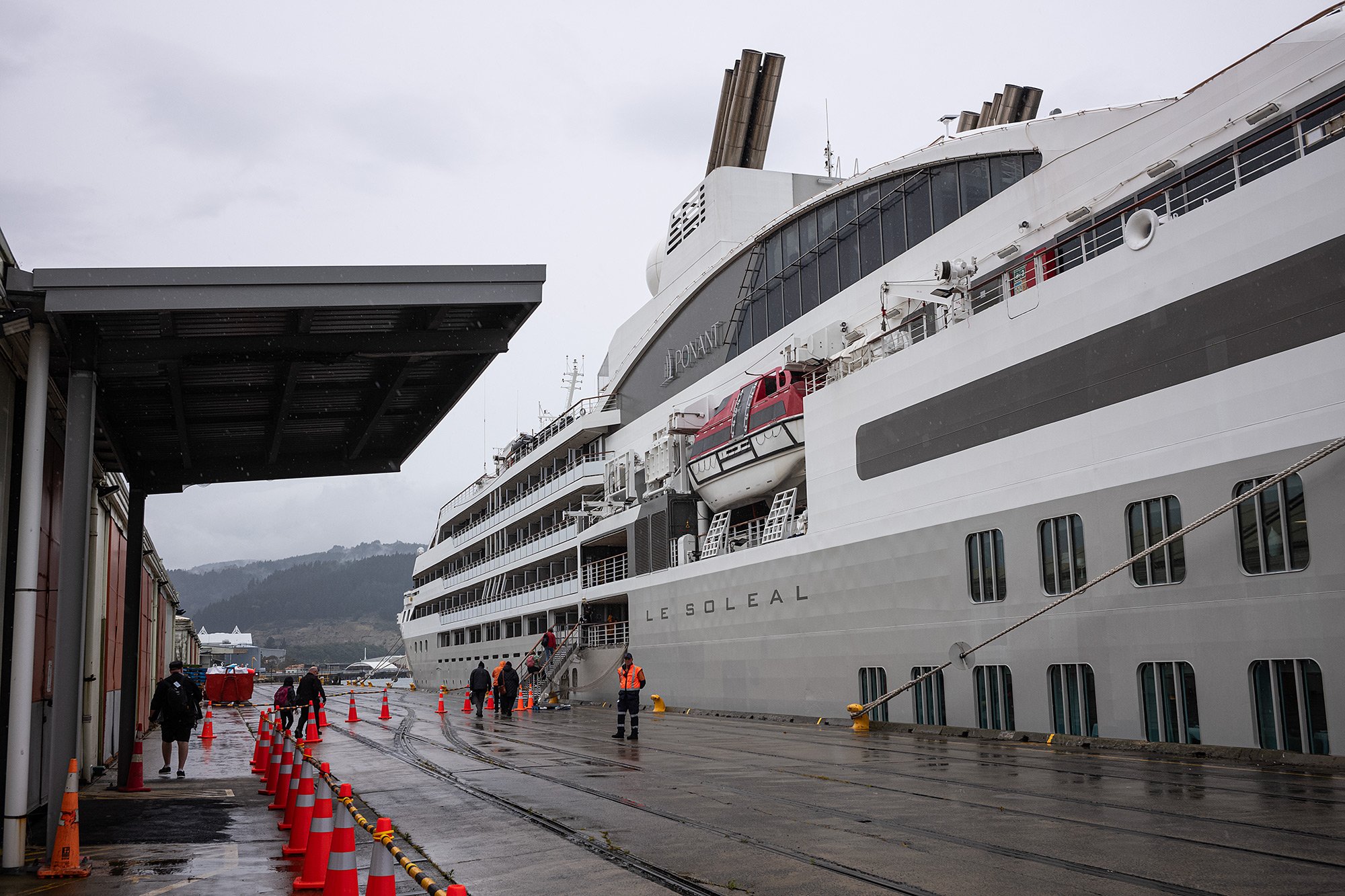

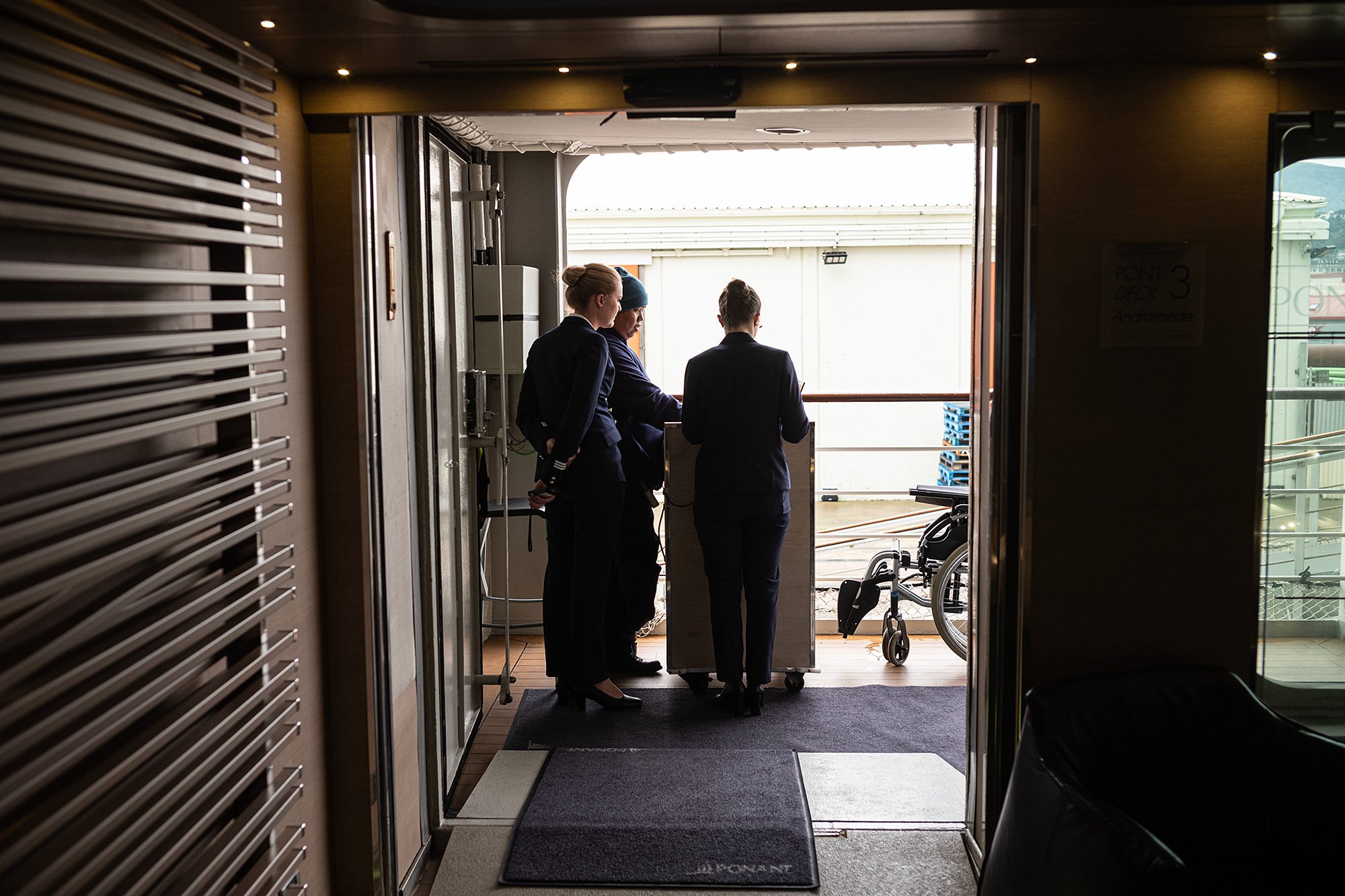
On board we’re welcomed with champagne, our passports are checked again, and our health declarations collected. We surrender our passports to the crew and are shown our cabins. I unpack quickly and then head off to explore the ship.
My cabin is lovely, though smaller than the one on the Ocean Albatros. The common areas also feel smaller on this ship than the last. That said, the Ocean Albatros is a new ship; Le Soléal is over 20 years old, but it doesn’t show its age save for perhaps in how the common spaces are designed and laid out.
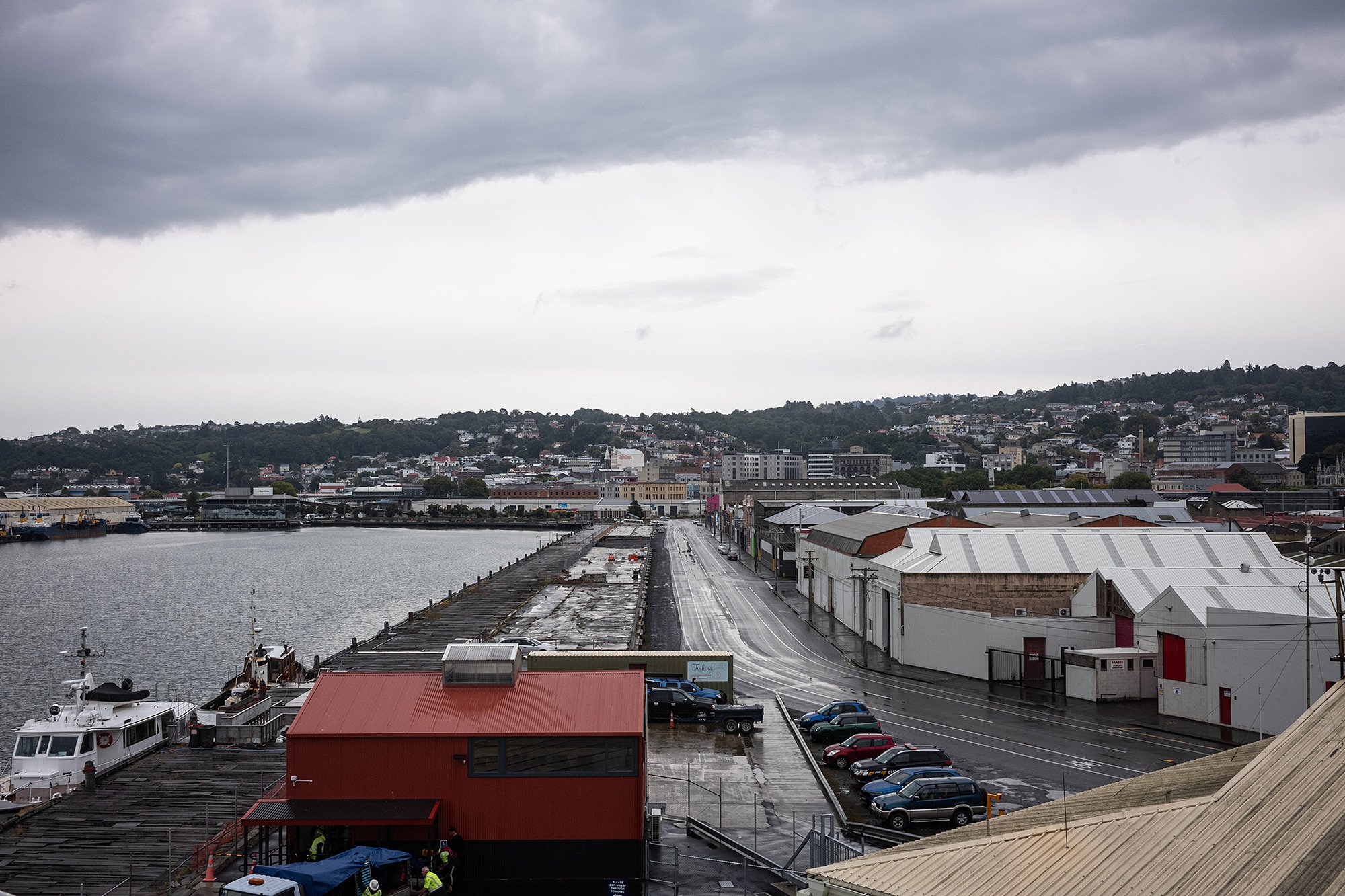
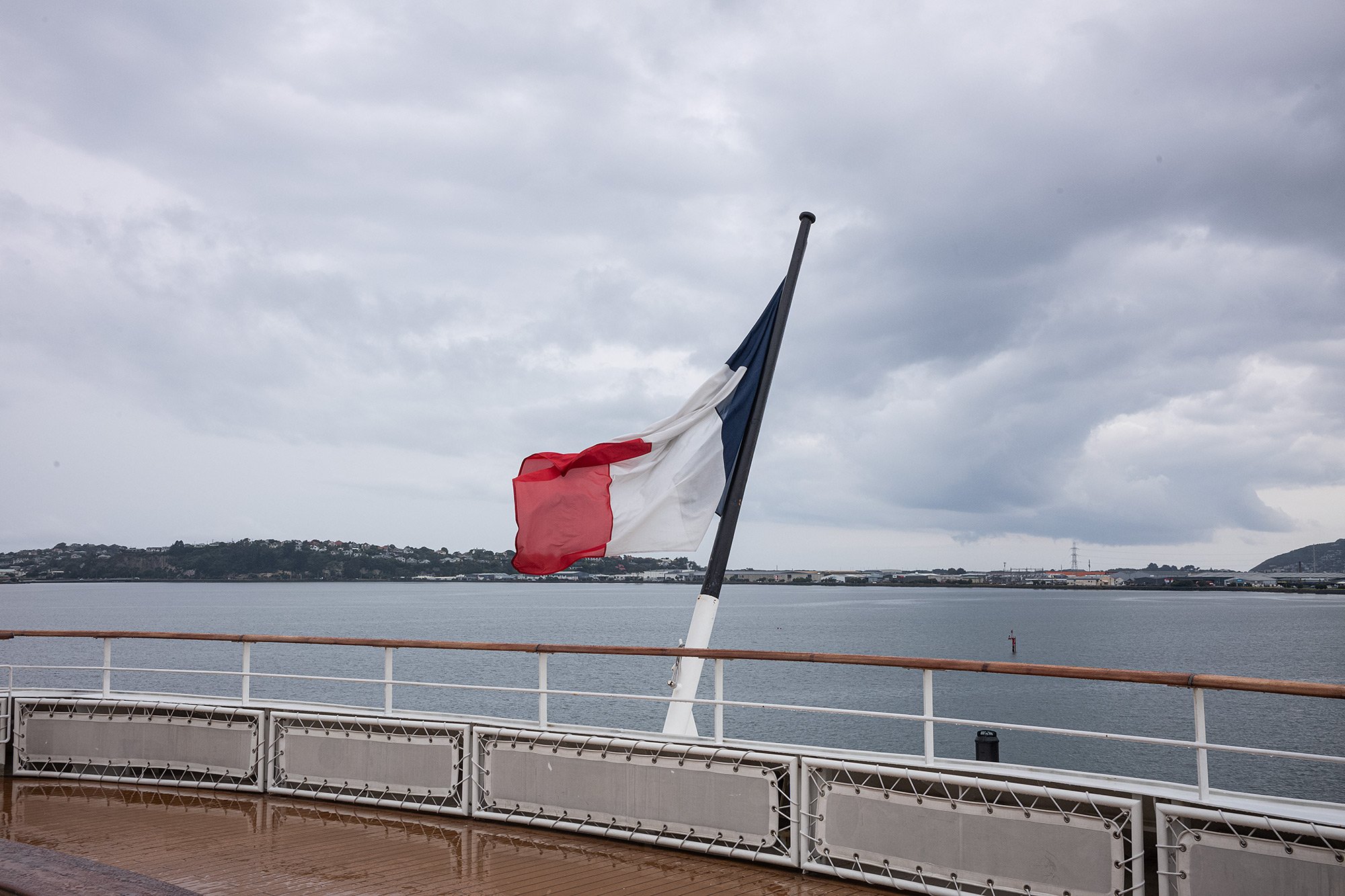

At 17h there’s a welcome briefing by the cruise director, an animated Italian man. He introduces the captain who welcomes us aboard as well as Natalie Hewit, a filmmaker and member of the Explorers Club who has directed two films about Antarctica, the latest about the rediscovery of the Endurance. She’s joining as as a special guest and lecturer.
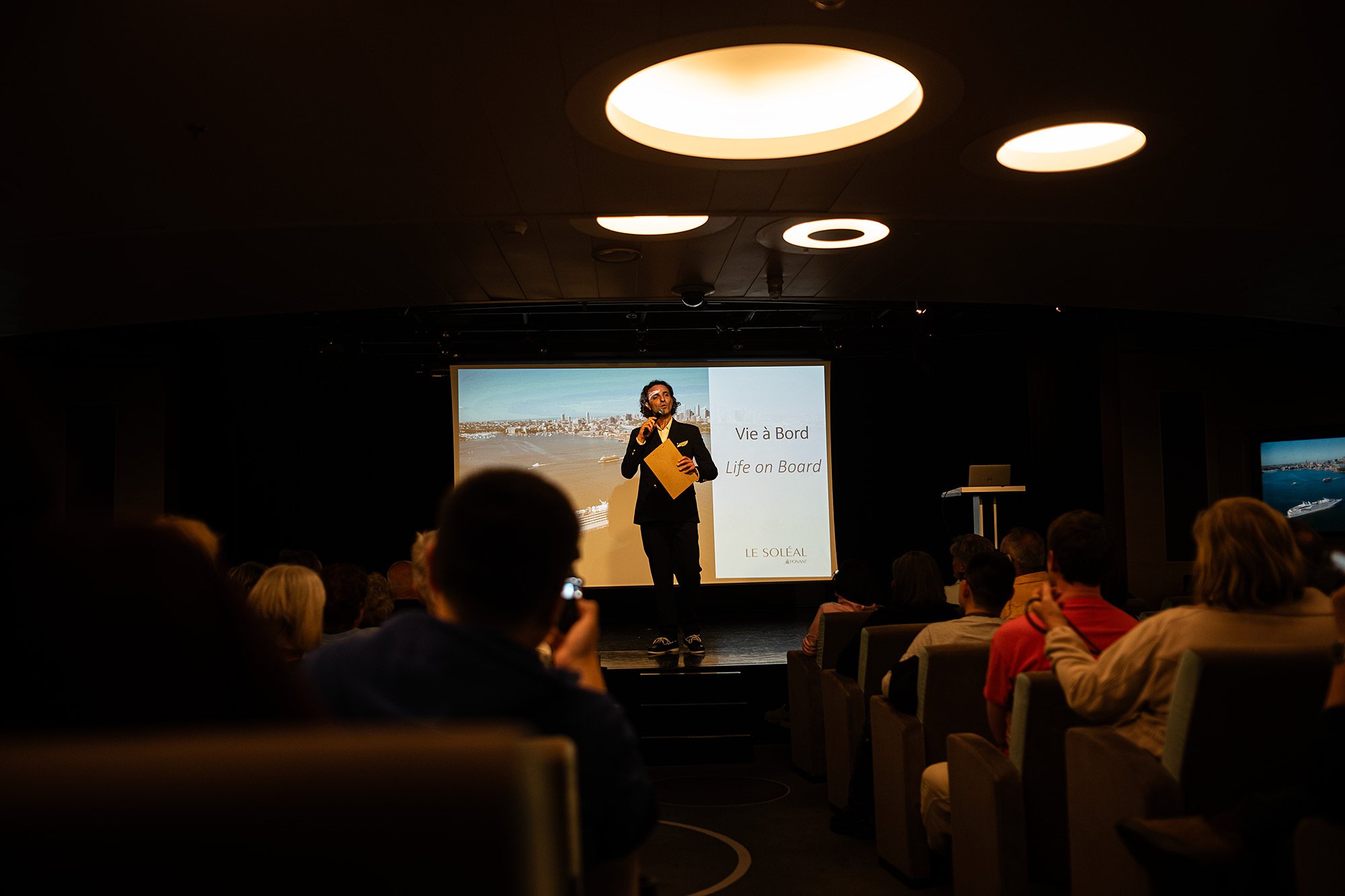
Life boat drills follow, and we’re separated into two groups. The Chinese couple beside me fall asleep and snore loudly. I have to wake them up so that we can file out of the auditorium. After dropping off my lifejacket I am caught at a landing of the stairs. People are still climbing up to their cabins. I meet Lyndsey and Sabrina, two of our naturalists and guides on the trip.
I had chatted briefly with Lyndsey before on the way to the briefing and learned that she’s done this and other Antarctic expeditions from Ushuaia. I ask if there are games of Monopoly Deal on board. She says she has a deck and I ask her to deal me in when they play.
We chat until the crowds clear and I head to deck six to watch us cast off. As we set sail I meet Graham. It’s his second voyage on this itinerary. He tells me he has a personal connection to this trip; his uncle was a geologist on Scott’s tragic expedition. He tells me his uncle was part of the western expedition, the one that’s almost forgotten.
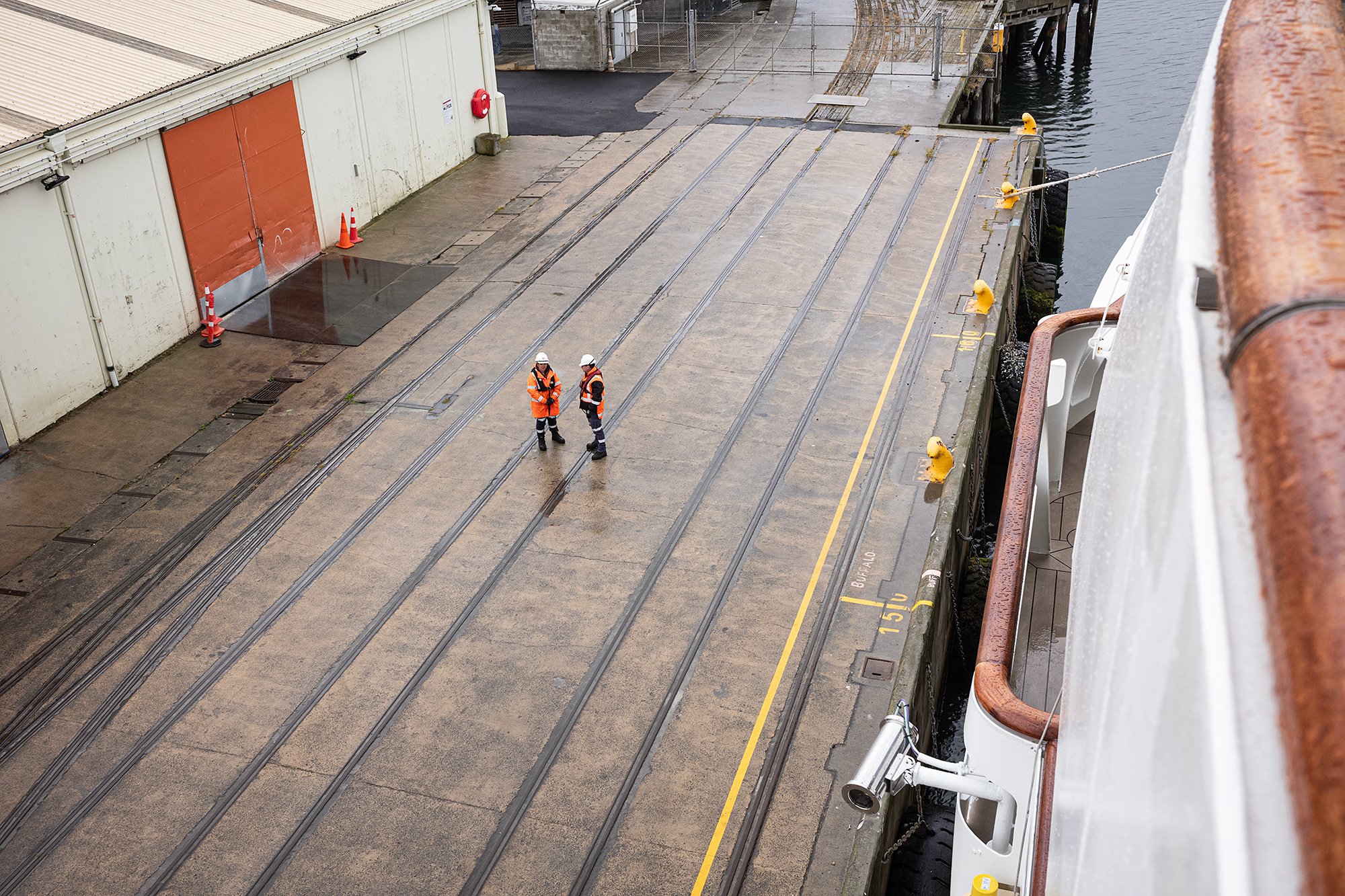

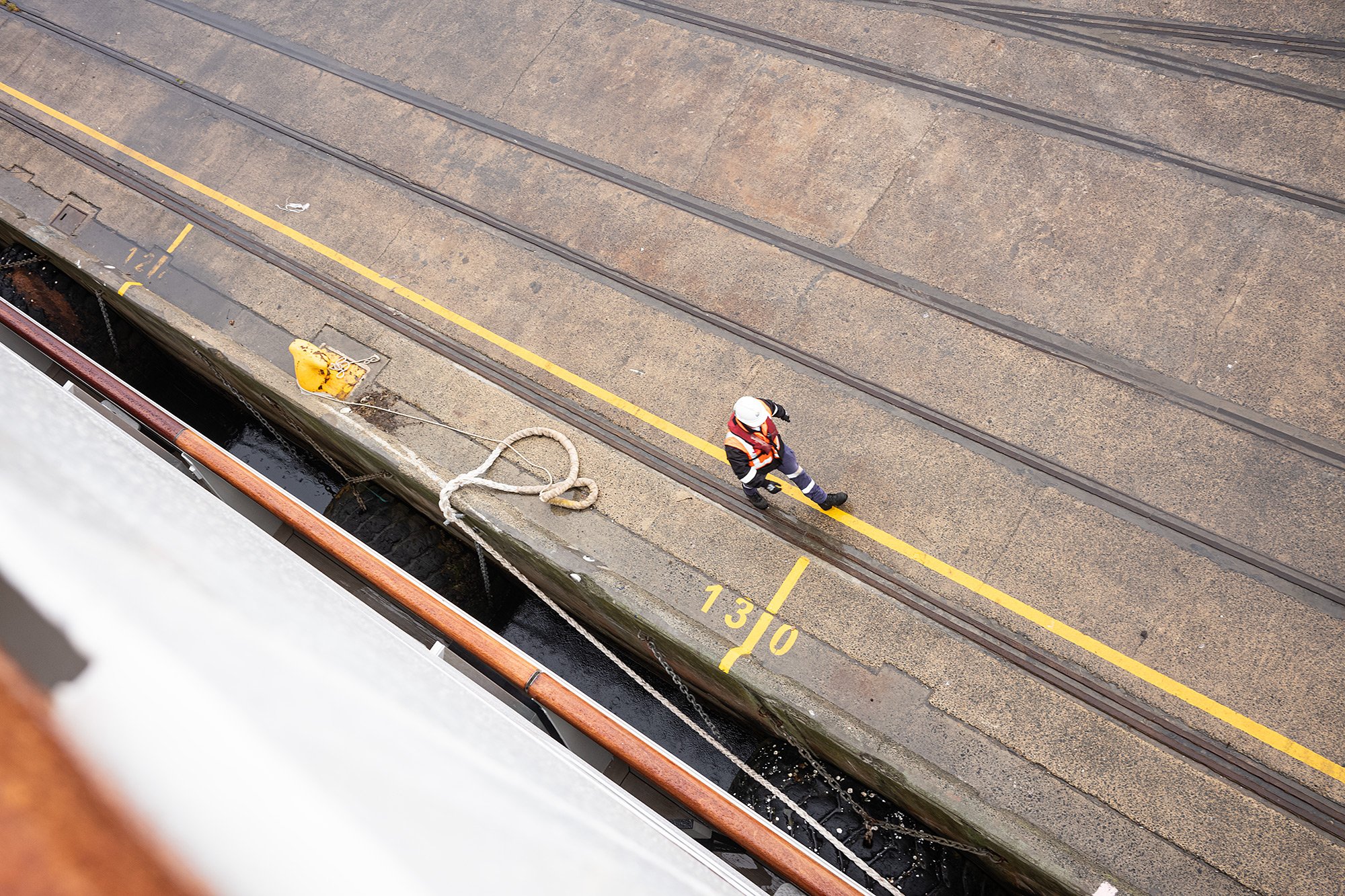

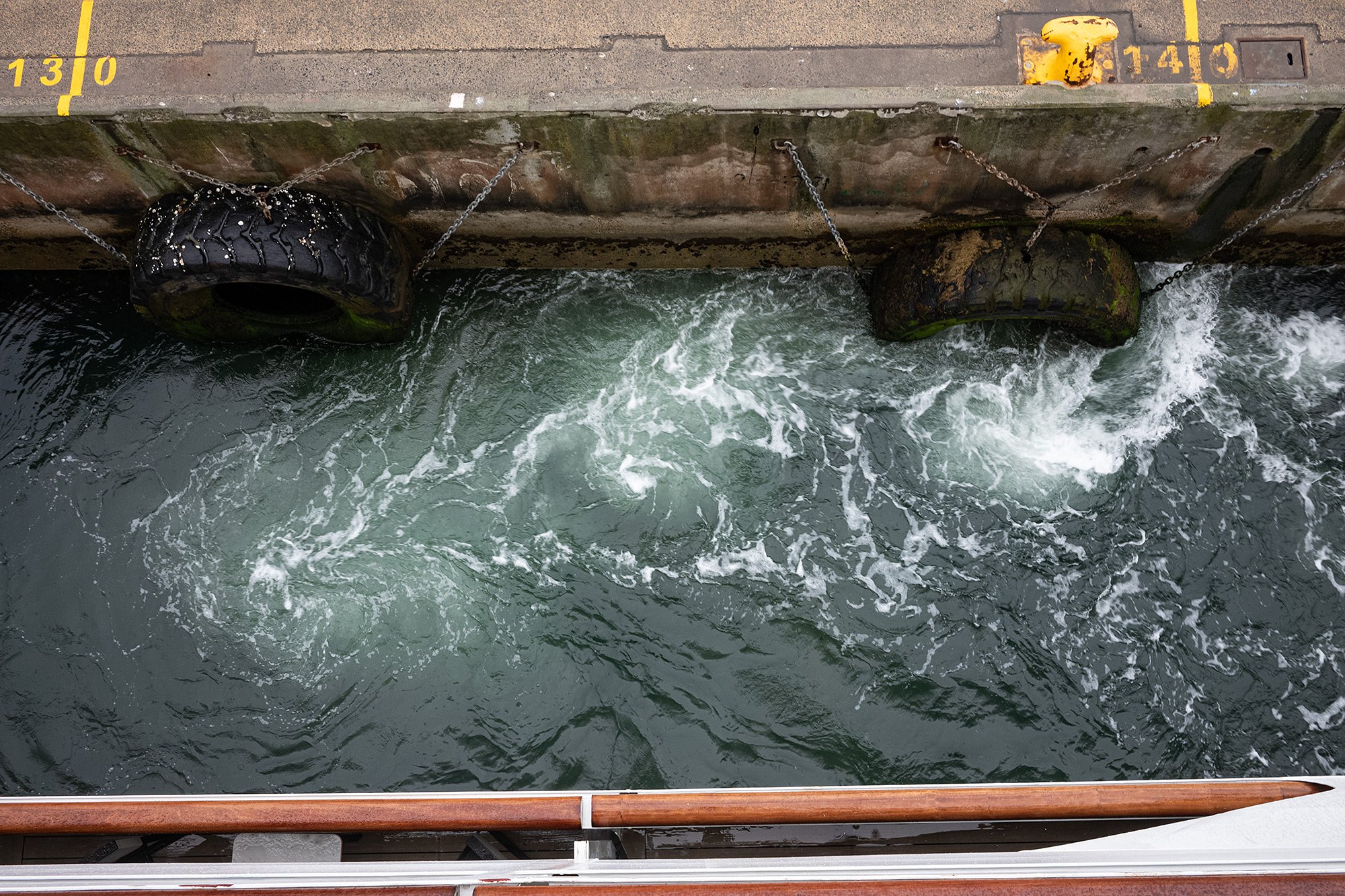

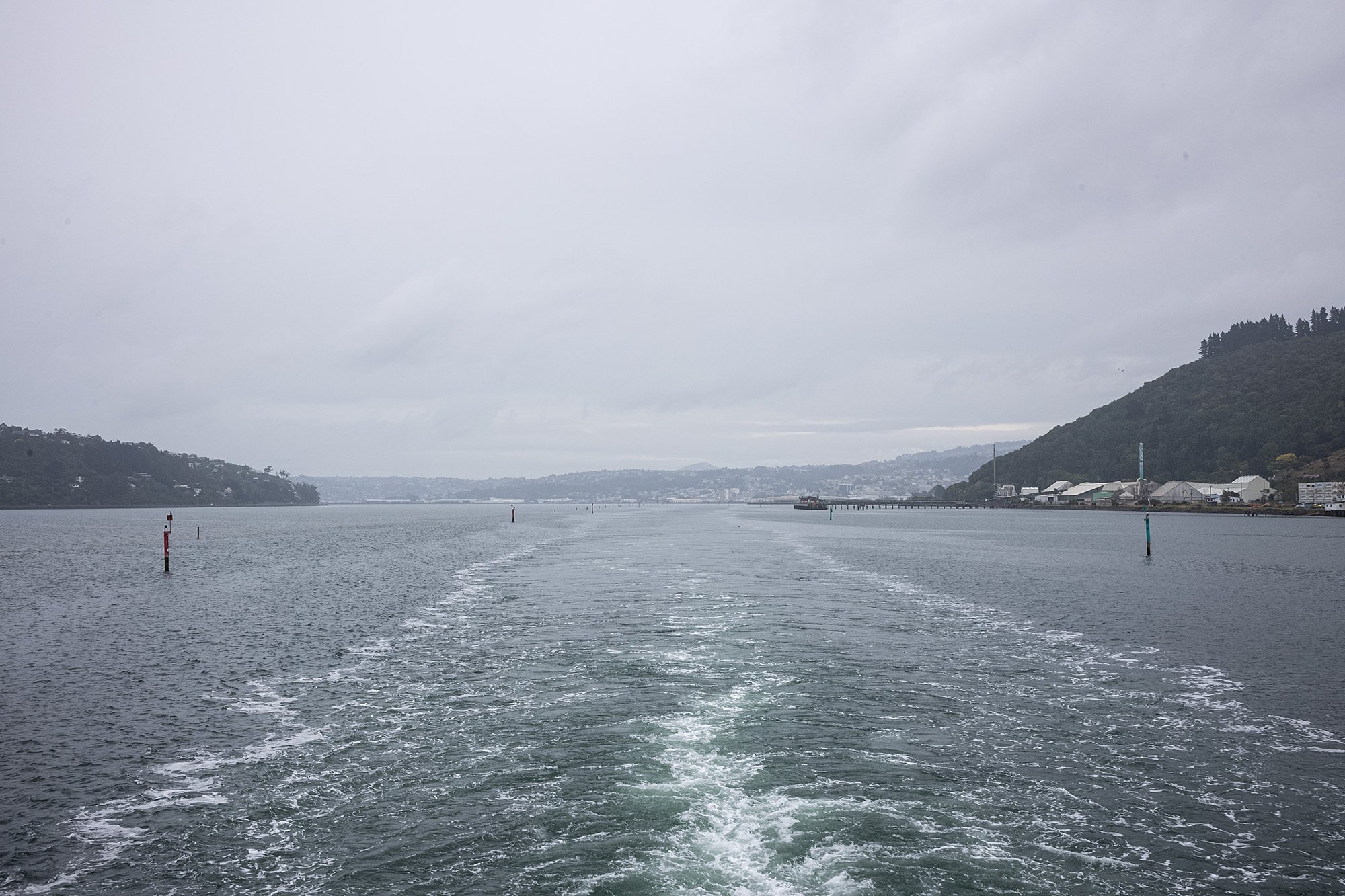
Back inside cocktails are being served for Australia Day, a blue concoction that’s a riff on the French 75. I take the glass offered and head back to the bow of the ship. While sitting at the bar Natalie introduces herself and we get to chatting. I tell her I have yet to see her film but it’s now top of the list. After a bit she excuses herself as she’s guests to attend to. We should have dinner some night, I offer. What are your plans tonight? I have none. She tells me to grab her when I feel hungry.

I step back outside to watch our navigation. The channel is narrow, and at one point we pass through a tight area between two islands. As we come out of it the captain tells us that we’ll soon be passing a lighthouse, where albatross and blue penguins nest. We’ll probably not see the penguins on the shore; if we’re lucky we’ll see them in the water.
Sabrina is the first to spot them porpoising out of the water. They swim off the starboard bow, surfacing once more before they disappear. She’s with Lachie, another naturalist guide, and a passenger asks if they’re a couple. They are. The passenger says that on her last cruise there was a cute guide couple; she’s happy to see them together.
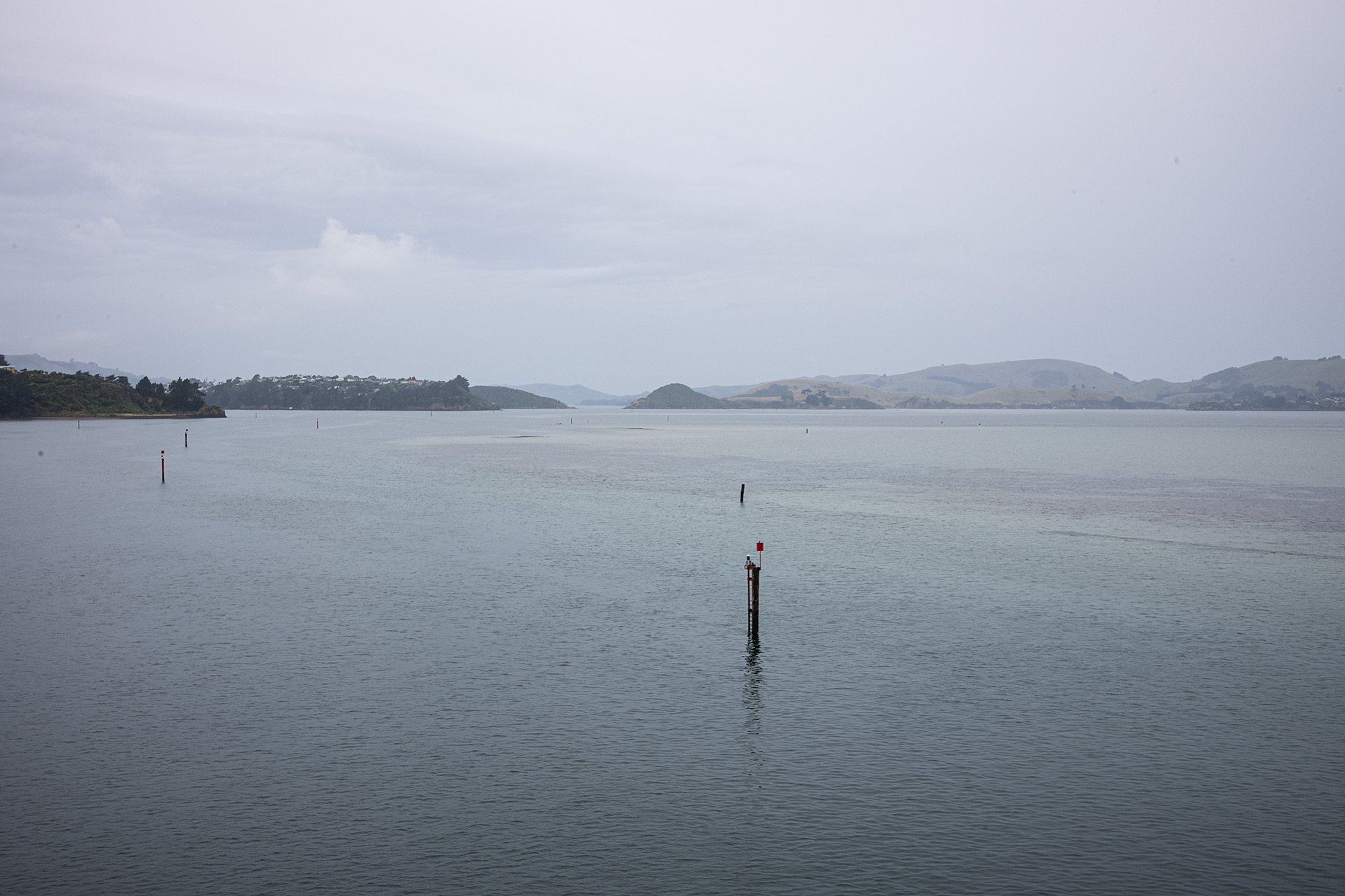

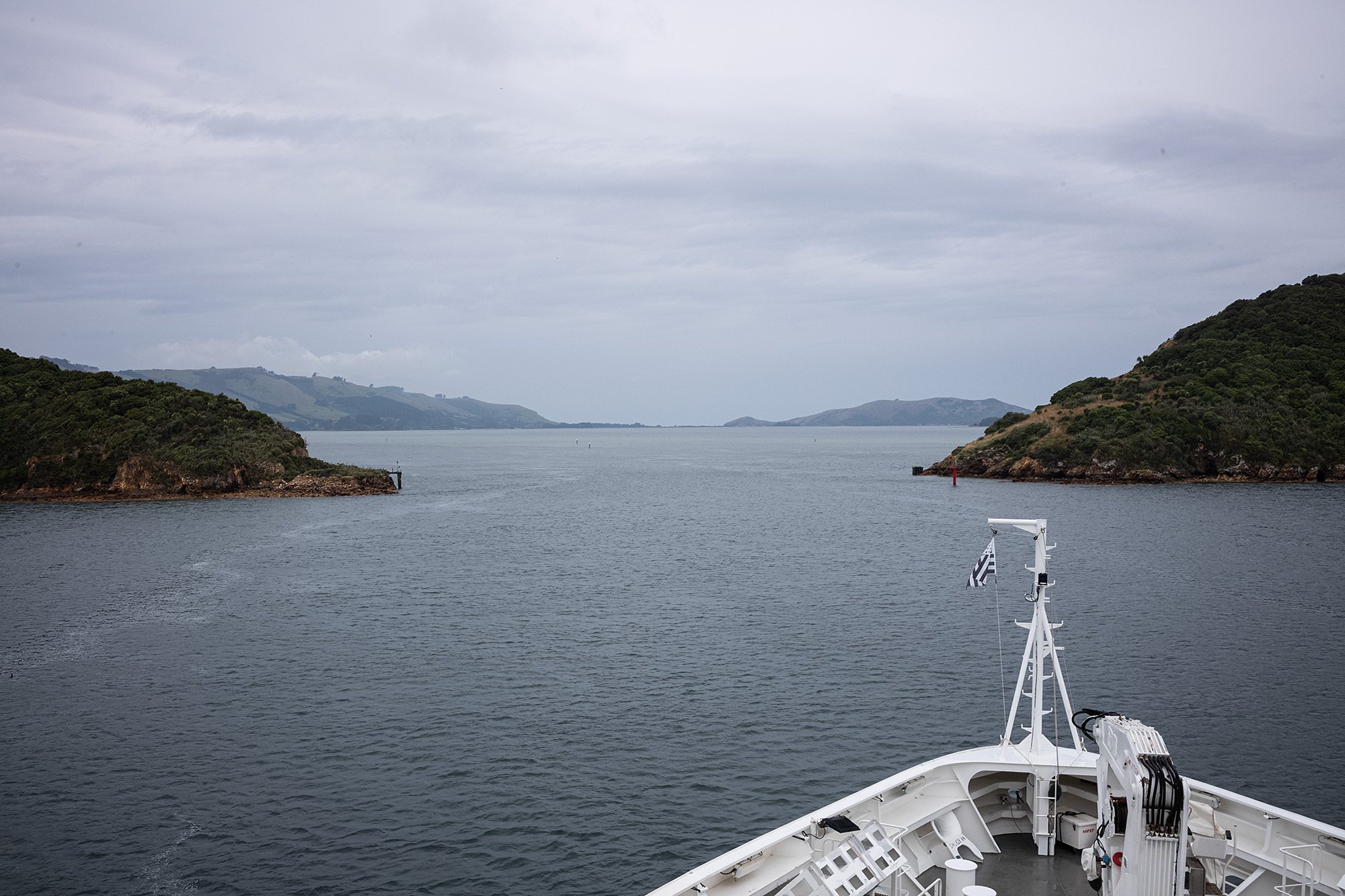
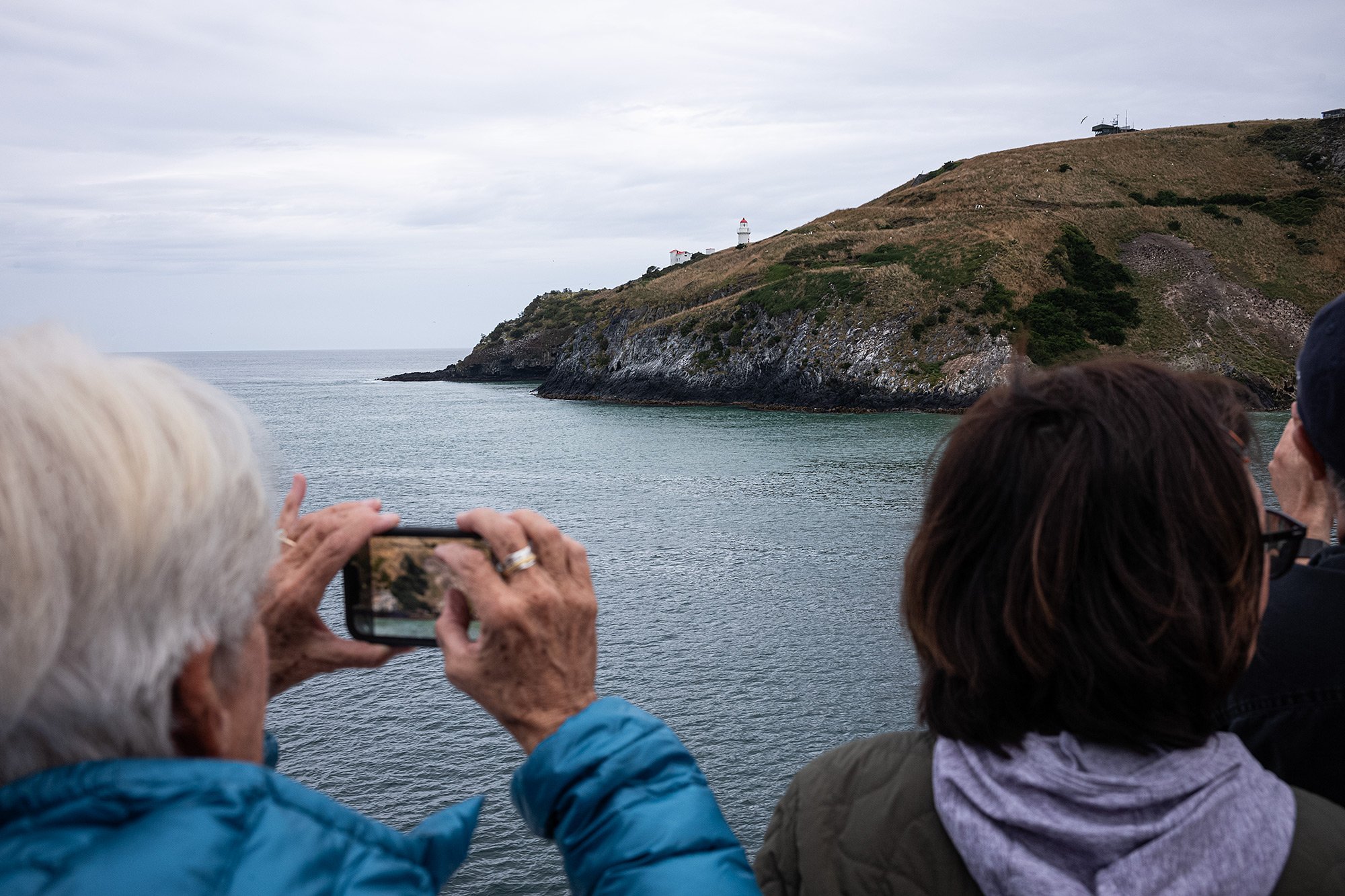

Natalie appears. A group of Australians have invited us to join them. I take my leave and we head downstairs.
The Australians comprise of brother and sister twins and their friends. They’re avid cruisers; the couple, on her retirement, did a 131-day cruise. The brother has recently done consecutive cruises covering the Northwest Passage and then onto Svalbard. He tells me they saw 51 polar bear on the Northwest Passage, but only six on the Svalbard cruise.
I ask Natalie how she made her last voyage to find the Enduurance. She tells me they set sail from Cape Town with a black captain. She told me he was an amazing man, the first black sea captain in post-Apartheid South Africa.
We bond over how crazy Shackleton’s adventures were with the Endurance. It all seems so fantastical. She tells me she couldn’t believe it was real until she saw the first images of the Endurance, grainy footage from a camera mounted on a submersible.
After dinner we retire to our rooms. Natalie and I the last to leave. I thank the somalier on the way out and ask his name. I give mine in French.
Do you speak French? I took it in high school but I’m terrible at it. Then I started learning Spanish and now Spanish comes out when I try to speak French. Natalie tells me she has the same issue with German, and tells me she studied Chinese at University.
So you speak Chinese? I ask in Mandarin. She demurs. She learned to read and write but the speaking bit is the hard part. She asks if I’ll teach her. I tell her my accent is terrible, but I’m willing to be a conversation partner. I don’t know how much she’ll learn. She’s content with that. And we bid each other good night. 🇦🇶
—27 January 2025

